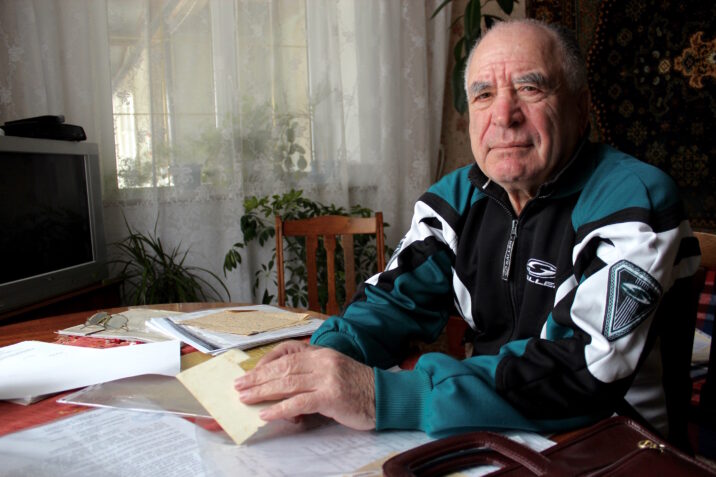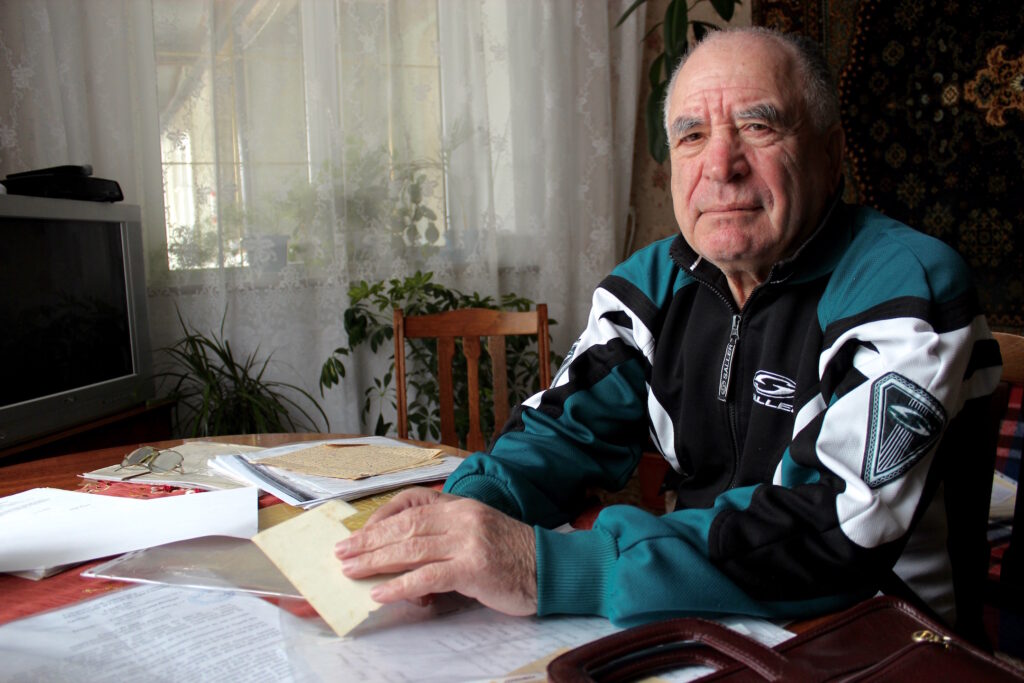

Ion Lungu: I was born in the village Varzaresti Noi in the Calarasi region, in 1943. When they deported us I was six years old. I remember well that on July 6 (1949), my father woke us up –– me and my older brother, Vasile. He had tears in his eyes and he said, “Get dressed, boys. We have to go.”
I couldn’t understand what was happening. I went outside. It was summer, around 7 a.m., and there were a lot of people outside. Pretty much the whole village knew that a few families were going to be deported – about six families in all.* Everyone knew, and people were walking around crying.
* After the the Soviet Union occupied Moldova (which was previously a province of Romania), authorities carried out three major mass deportations, in 1941, 1949 and 1951, sending about 100,000 people to Siberia and other parts of Central Asia. These operations mainly targeted so-called “kulaks” (wealthy peasants) and religious minorities like Jehova’s Witnesses. The process was similar to deportations carried out in other Soviet republics throughout the Stalinist period.
The way my father tells the story, it started with a knock on our gate at midnight. He went out with a rifle to see who was there; they told him they are soldiers and he has to open the gate. He opened the gate and saw about five soldiers and an officer. They had a car. They came inside the yard and took away his rifle. Then they began writing things down, taking inventory of what we had in our house.
The windows had wire on them like in prison and there was only one door that they would open to bring people in.
The house, the kitchen, (“saraiul” – a word I can’t translate), the basement storage area. They made an (a Russian word that sounded to me like “opis” or “опись,” which translates to “inventory”), and we didn’t know that this inventory still existed, but I found it in the archives of the city of Calarasi.
When they finally allowed us to start packing, my mother went into the garden to get a few onions. And that’s when one of the KGB* officers came up and slapped her backside and said: “Let’s go. You’ll find onions in Siberia.” My mother left the garden crying. After a little while we all got in the car and they took us to the “sin Soviet”. Now it’s called “city hall” but back then it was the “sin Soviet.” They took us there and kept us in the car – we weren’t allowed to get out – and there were soldiers with machine guns outside the car. And I remember there were another two or three cars with other families inside.
*Ion was probably referring to the NKVD (the People’s Commissariat for Internal affairs), which was a precursor to the KGB.
They kept us there until evening. During this time, my brother somehow got away from the car – I don’t remember how exactly – and the soldiers noticed. In the meantime, my older sister had come to see us. Because she was married, she was registered with her husband’s family and she was not to be deported with us. But my brother had run away, so they said they would take her instead. That’s when my father got out of the car, and he and one of the soldiers went looking for my brother through the vineyards and the orchards, and they found him. They brought him back and let my sister go home.
In the evening they took us to the train station and put us in a wagon. The windows had wire on them like in prison, and there was only one door that they would open to bring people in. We had a few other families in there with us – our neighbors and others we knew. Once in a while the soldiers would open the door and give us a bowl of “pahliovka” or borscht or whatever they had.
Recorded March 8, 2013 in Durlesti, Moldova.
Recent Comments